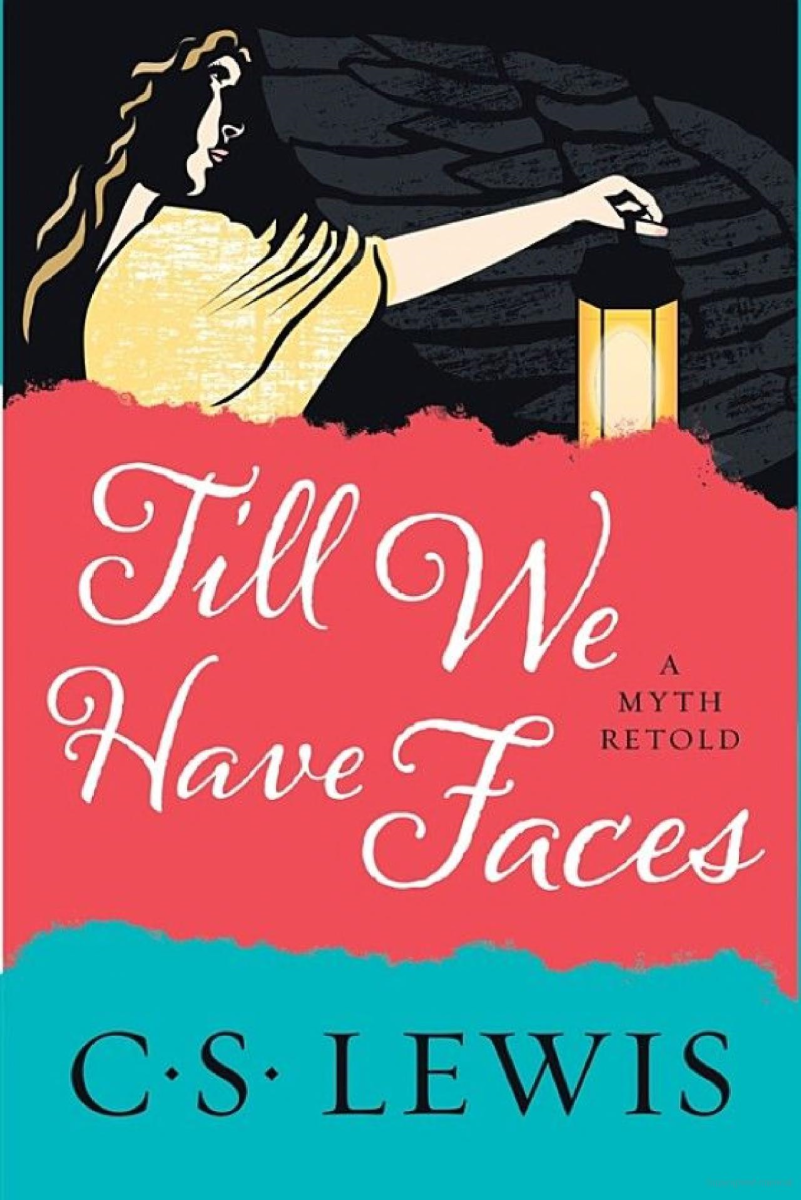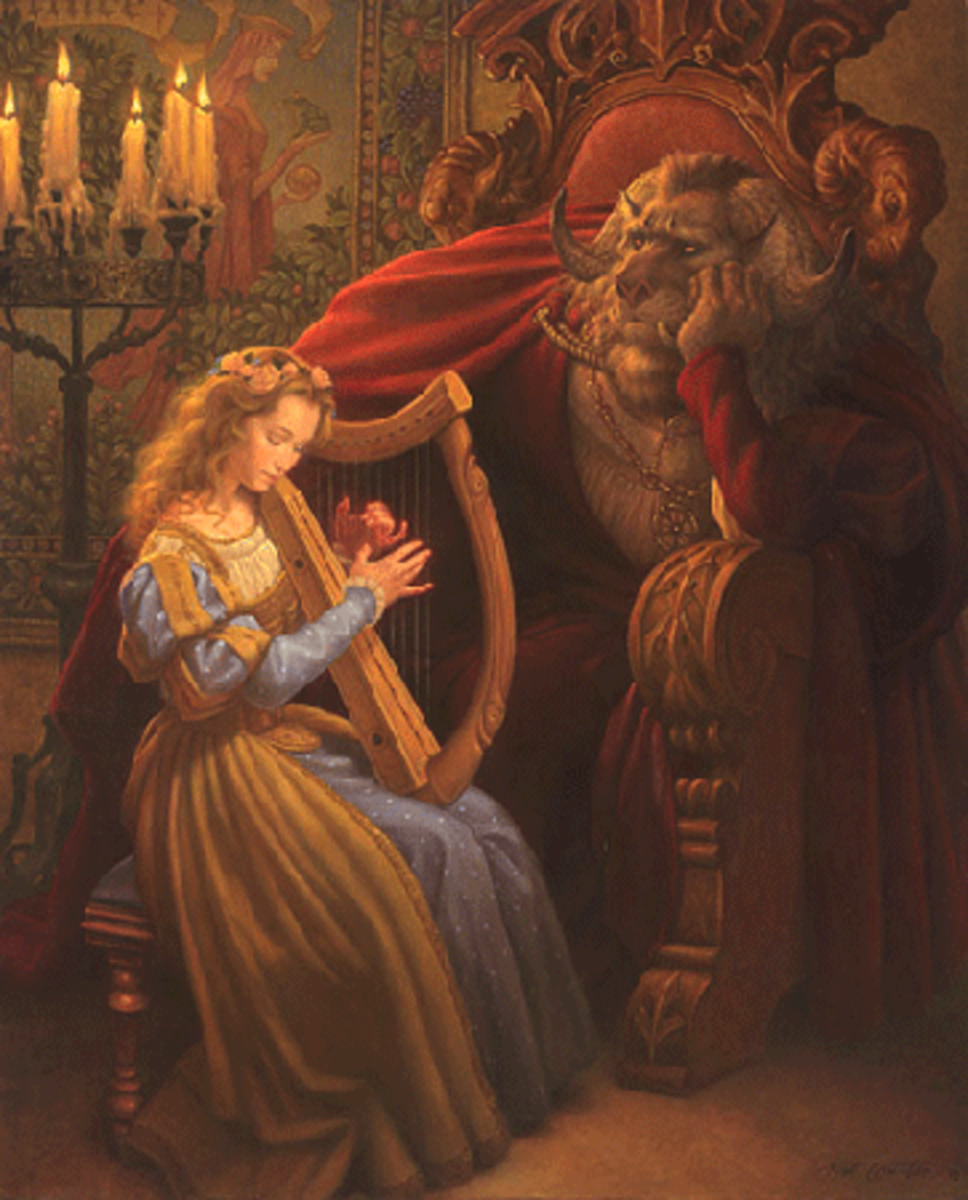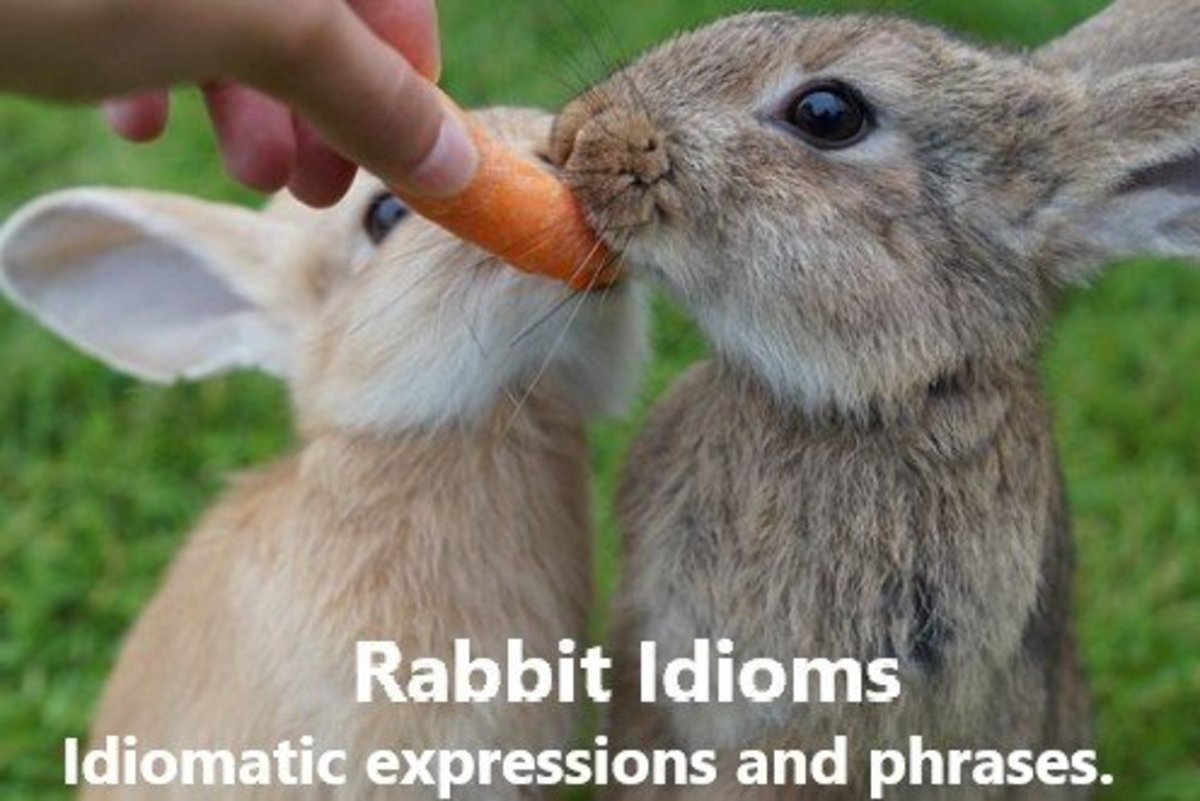Till We Have Faces Analyzed
Personal down of C.S. Lewis's "Till We Have Faces"
Till We Have Faces
Jeanet17
5-5-11
The threads of ancient mythology often weave together in a pattern of heroism, magic, and imagination, but rarely do they blend to make anything realistic or applicable. The story of Cupid and Psyche is no exception to that stereotype, and this is where C.S. Lewis finds his niche. C.S. Lewis’ Till We Have Faces takes the timeless, immortal, and unrealistic myth of Cupid and Psyche and spins it into a human and moral story about self-discovery, God, and knowledge. Through the twisting and tweaking of this story he instills, even through the title, that we, as people, are not complete nor are we improving until we have faces.
“Child, to say the very thing you really mean, the whole of it, nothing more or less or other than what you really mean; that’s the whole art and joy of words” (294). This quote takes hold of a large portion of the book’s meaning, especially within the context of another: “I saw well why the gods do not speak to us openly, nor let us answer. Till that word can be dug out of us, why should they hear the babble that we think we mean? How can they meet us face to face till we have faces?” (294). How do we get faces though? Is it something we arrive at simply at the right time, or is it something to be worked for? What does it even mean to have a face?
A face is something that is wholly a person, unhampered by pride, selfishness, or jealousy. “[Psyche was] a thousand times more her very self than she had ever been before the Offering. For all that had then but flashed out in a glance or a gesture. . . was now wholly present, not to be gathered up in hints nor in shreds” (306). Psyche had realized who she was; a woman of belief, of humility, and of happiness. Psyche was not intitailly perfect, rather, she became perfection, or in terms of symbolism, she became God. She had pulled the hints of herself together to make her face, who she truly was, nothing more or less. Orual, the narrator of the story and also Psyche’s sister, spends her life mainly unconsciously searching for her face while searching for Psyche, or searching for God. There are different faces though that can be applied that are not the true or whole face. Through her life-time Orual tries many faces, and even a veil, “I had worn a veil because I wished to be secret” (180). She’s trying to disguise herself while she sorrows for Psyche. “This astonished me. One part of me made to snatch that sorrow back; it said, ‘Orual dies if she ceases to love Psyche’” (211). This is true, without a love of God, our spirits would endure death in hell.
Orual starts her trial of faces with the face of a child. The early years with Psyche and the Fox, their German tutor, were simple and seemingly innocent, yet this is when Orual’s selfishness begins to sprout. That selfishness stems from the possessive love she feels towards Psyche which will provide her with the bitterness she feels towards the gods. As Orual saw it until the end, the gods had taken the only thing she loved and that was hers.
The embitterment Orual feels leads her to her next face, Ungit. Ungit is the bloody goddess who is, in fact, a part of Orual, just like there is a sinful nature in every human being. “Without question it was true. It was I who was Ungit. That ruinous face was mine. I was that. . . all-devouring womblike, yet barren, thing. Glome was a web---I the swollen spider, squat at its center, gorged with men’s stolen lives” (276). Ungit’s face however, is not a certain one. It constantly shifts depending on your perspective. “I have said she had no face; but that meant she had a thousand faces” (270). Ungit’s faces reflect sin’s nature in the way that it’s not always discernible. In a way, Orual will always have a part of the Ungit face because, “All, even Psyche, are born into the house of Ungit. And all must get free from her” (301). All men are born with sin, and all must rid themselves of it. You are freed from Ungit, from sin, when you piece together your own face; though, in a paradoxical way, everyone will always have a sliver of Ungit in them, because Ungit is a sliver of everyone; that’s why she has so many faces, she collects them from the people who worship her. The one answer to this paradox is God. While on earth sin has all-power, but if lives are lived righteously people will make it to heaven, where God has jurisdiction and Ungit loses those certain faces.
The next face is the face of Psyche, before her perfection. The face of Psyche is the face the god Cupid told her she would bear. “You, woman, shall know yourself and your work. You also shall be Psyche” (174). Both of the prophecies in this statement came to pass. Orual bore Psyche’s pain as she traveled to redeem herself to the gods. In a way, she bore her cross in bearing Psyche’s. Many times Orual unknowingly has dreams of the trials Psyche faces and feels the pressure and weariness of them in place of Psyche. Through these dreams begins the slow dawning of genuine love for her sister and what she represents, which is God. Orual was willing to bear Psyche’s burdens, even unknowingly, and it’s the realization of this at the end of the novel that opens Orual to the discovery of the possessive and profane love she once had for her sister, as well as the protective and sacred love that’s now blooming. Through all her faces Orual did come to know herself, and her work as well, as the prophecy states. Without God Orual would have been battling her faces and doubting her feelings; through the trials and faces she goes through she finds God, and thereby herself. As Orual weaves through all her different faces she finds pieces of her actual face, and slowly she starts to put them together to build back the Orual who loves Psyche and would have died if she did not love her. “Orual dies if she ceases to love Psyche” (211). This is speaking of the real Orual, the actual face that is hidden behind the mask of others. At the end of the story Orual reveals her face as humble and reprimanded, but willing to submit to the will of God because she understands that His perspective is broader than her own, and His purpose bigger.
One final face that Orual endures is that of the Queen. The enemy of Orual shows itself in this face for two reasons. The first because it is during this time as the Queen that Orual strives to rid herself of Psyche, she wishes to rid herself of God. The second because this is when the devouring nature Orual possesses through Ungit is the most prominent. As the Queen, Orual begins sucking the life out of her closest comrades. “You’re full fed. Gorged with other men’s lives, women’s too: Bardia’s, mine, the Fox’s, your sister’s---both your sisters’” (265). She works herself out of pondering about Psyche, and takes everyone else with her, by the full involvement of ruling a kingdom. The veil that Orual wears during her time as Queen marks this face symbolically as a way to hide something else, something real, which would be Orual’s actual face and faith. The night that Orual removes her veil marks the first step of her gradual process to aligning all the fragments of herself to piece together her face.
A face is something arrived at once a person realizes and unlocks their full potential. It is something of perfection, but how is that form of perfection reached? If we cannot achieve the mortal perfection without a face, thus ‘until we have faces’, and yet we cannot have a face until we ascend to mortal perfection, thus Psyche’s realization of her self in perfection, how is this paradoxical goal to be attained? There is only one answer: it cannot be, at least not without higher help. Throughout the entire novel, Orual refers to the gods, the beings who imprisoned her within herself. Her ugliness, her bitterness, her pain, her loss, and her selfishness are all weighing on her constantly. Orual was lost in her own faces.
In Christianity there is one thing that can save us from ourselves, and that is God. Lewis entwines a coming to Christ in a myth of submitting to the gods. “I ended my first book with the words no answer. I know now, Lord, why you utter no answer. You are yourself the answer” (308). In the end, Orual finds God, and it is because she can see his face that makes it possible for Orual to find her own. God was the answer, through Him she found her face. Orual would not be able to find her face without God’s help, but she has to allow for God to reach her, and she herself must reach for Him, before she realizes her face. The faces Orual goes through signify her search for God. It was the lifting of the final face, the Queen, that revealed Orual truly, which allowed for God reaching in, and Orual reaching out.
The face behind Orual’s many faces, the raw face that’s been hidden, becomes apparent right at the end of the book. “Two figures, reflections. . . stood downward in the water. But whose were they? Two Psyches. . . yet not exactly the same” (307-8). Orual becomes as God, she’s becoming perfect. Orual renounces her complaints against God and re-organizes her opinions and perspective, accepting His wisdom over her own. Till We Have Faces is symbolic for saying that until we know who we are, we cannot improve to know God, we’re just meaningless words “Only words, words; to be led out to battle against other words” (308). Why would He listen to the babble that battle would create? God would wait patiently until we knew the words and the meanings we would use, He would wait until we had faces, because He knows that we need Him to have a face.





